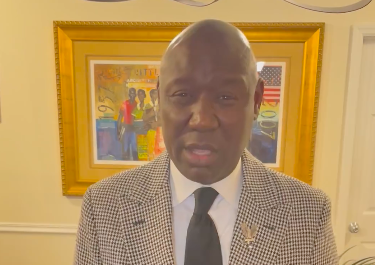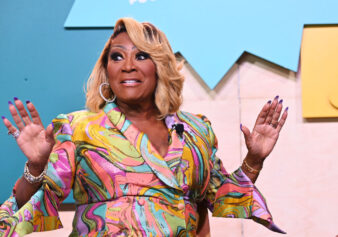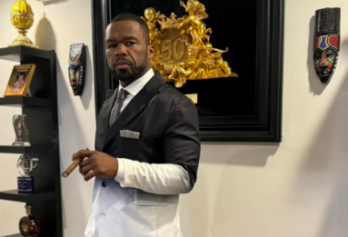Civil rights attorney Ben Crump is looking at taking on major recording companies and publishing entities to challenge the way they assess streaming royalties for what he calls heritage artists.

A heritage artist is a term coined by Billboard for acts that have released at least 10 albums or have been around for at least 20 years.
Notoriously, Black and Brown heritage artists have been victims of bad contracts from the label and their publishing companies. Now, Crump has stepped up to help get these legacy acts a piece of the streaming pie, a music distribution model that did not exist when many of them signed their deals.
“R&B artists began contacting me saying they believed they were being discriminated against and the music industry was not compensating them fairly,” Crump said in an interview with The Times U.K. newspaper.
“We soon discovered the music industry and the record companies are actually equal-opportunity oppressors — they oppress all the artists, whether they are Black, white, Hispanic, it doesn’t matter,” he continued.
Oftentimes labels have unilaterally applied CD royalty rates, deductions, and discounts to digital income, leaving artists with a tiny share of streaming revenue.
This is where artists and music composers come in and debate the labels’ archaic interpretation of old contracts to their advantage. Some contracts differentiated between sales and licensing income, offering artists a higher rate for the latter.
Some labels pay a lower sales rate for streams, despite streaming revenue originating from licensing deals, leveraging an element in a 1990s copyright law called “making available right” to justify how streaming revenue is distributed. It is argued that labels should have obtained explicit permission from artists to use this, allowing for better digital royalty negotiations, but this rarely occurred, Complete Music Update reports.
According to Crump, this is a violation for artists all over the world, even though they are confined to the U.S. laws to address this civil rights violation.
“Whoever you are, you have the right to be compensated fairly for your creations,” he said.
Grammy award-winning composer, producer, and co-founder of Hipgnosis, a music IP investment and song management company, Nile Rodgers agrees that the issue “is not the streaming services,” but with the record companies.
“It is not the streaming services that we have the problem with – it is fantastic that they can distribute our product in such an effective, wonderful way and keep a great digital trail. It is the labels that are perpetrating the issues that need to be seriously addressed,” the Chic recording artist said.
“The fact is the system is unfair,” he continued in a 2021 interview with The Guardian. “Artists and writers are not remunerated properly or equally. They do not get their fair share of the pie. To fix this we need to have transparency and artists should be paid on a license, not a sale. Alongside this, songwriters should be getting a much bigger share as they are delivering the key ingredient.”
“We don’t even know what a stream is worth and there’s no way you could even find out what a stream is worth, and that’s not the basis for a satisfactory relationship,” he added.
One of Crump’s associates agrees with Rodgers, stating that this is why they are directly targeting the labels.
“The royalty payments are being made under terms decided by the record companies,” Anne Andrews said.
Adding, “We are unwinding that to try and understand it but we can’t say exactly what they are doing because we haven’t been able to engage them or their accounting departments yet.”




